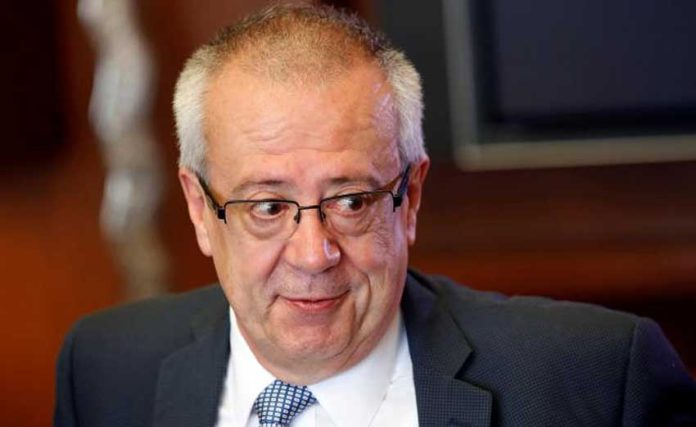There will be no “abrupt movements” to gas prices, Mexico’s future finance secretary said yesterday, explaining that only inflation would create increased costs to motorists when filling up.
“We’re thinking about increasing the price each year by [the same amount as] inflation; in real terms it’s not going to increase but in nominal terms, it will . . .” Carlos Urzúa told the broadcaster Televisa.
“The gasoline price is controlled at the moment, it doesn’t seem to be, but it is, because what the federal government is doing is lowering and raising the IEPS excise tax . . . it’s the same that we would do,” he added.
The future secretary’s comments were likely aimed at allaying fears that there could be another so-called gasolinazo, as a steep fuel price increase is known.
A decision taken by the current federal government to increase fuel prices by between 15% and 20% in January last year triggered widespread protests.
Urzúa, who also served as finance secretary in Andrés Manuel López Obrador’s Mexico City administration, also said that oil contracts already awarded to foreign and private companies would be honored by the next government as long as no irregularities are detected.
Mexico has held a series of auctions, made possible due to the 2013 energy reform, to sell off rights to explore for oil and gas.
Large energy multinationals and foreign state-owned petroleum companies have been among the buyers.
“If [the contract] looks good, it will go ahead. It’s a contract that we have to respect,” Urzúa said.
López Obrador has repeatedly said that he would review energy sector contracts already awarded and there have been fears in the private sector that, as president, he could move to cancel the reform, which also allowed foreign and private companies to enter the retail fuel market.
Urzúa predicted economic growth of 2.5% next year, an exchange rate with the US dollar of around 19 pesos and 4% to 5% inflation, adding that Mexican oil prices would likely be around US $70 per barrel.
Urzúa said that López Obrador will work to redistribute the budget in order to fulfill the promises he made on the campaign trail, such as increasing pensions for the elderly and offering more educational scholarships.
He also stressed that financial markets already factored in AMLO’s triumph months ago and said that once the new administration is sworn in, the process to update the North American Free Trade Agreement (NAFTA) could gather speed.
With regard to the new Mexico City International Airport project, Urzúa said that there were three possibilities, reiterating what López Obrador said last month.
One is for the existing Santa Lucía air force base in México state to be adapted for commercial use, a second option is for the project to continue as a public-private joint venture and a third possibility is that it could be auctioned to the private sector.
López Obrador told supporters at a rally in Texcoco two weeks before the election that ultimately it would be up to the people to decide the airport’s fate and floated the idea of a public consultation that could take the form of a plebiscite.
He has previously declared that he would scrap the project, charging that it is corrupt, too expensive, not needed and being built on ground that is sinking.
For the 2019 federal budget, Urzúa said, the incoming administration will end some government programs and implement new ones and cut payroll expenses by eliminating private medical insurance and life insurance policies for officials.
Source: El Economista (sp), Notimex (sp)
